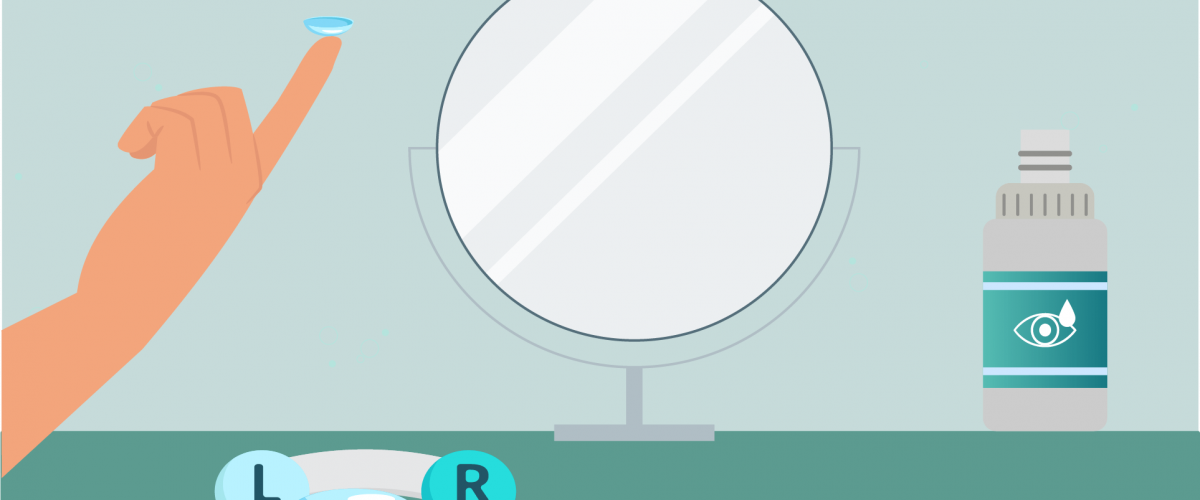Have you ever experienced dry, stinging or tired eyes when wearing contact lenses? If so, you may be suffering from dry eye.
Many people prefer to wear contact lenses, whether for practical or esthetics reasons. Contact lenses certainly have many benefits, but they can also cause irritation and dry eye. This doesn’t mean you have to abandon your lenses for glasses, but you do need to find out whether it is the lenses that are causing the dryness.
Why do contact lenses dry out the eyes?
The eyes are designed to be constantly hydrated. The surface of the eye is covered by the tear film, which protects, oxygenates and hydrates the eye.
Contact lenses are placed directly onto the tear film, over the cornea and the iris. If there is not enough fluid present, the tear film can no longer protect the eye. The eyes are no longer sufficiently hydrated, which results in dry eye.
In addition, when you wear lenses, the cornea finds it difficult to take in the oxygen it needs from the air. Instead, it uses the tears from your eye, which dries out the eye and puts you at risk of developing dry eye.
There are several reasons why contact lenses can irritate the surface of the eye:
- They may not be suitable for your vision or the curvature of your eyes
- They may be poor quality and absorb a lot of tears.
It is therefore important to choose your lenses very carefully if you experience dry eye-type symptoms.
What are the best contact lenses for dry eyes?
Soft or hard lenses?
Ninety percent of contact lens wearers opt for soft lenses. However, these lenses are hydrophilic, meaning they have a particular affinity for water — they act like a sponge and soak up the tear film.
Hard lenses are therefore better suited to dry eyes, as they have a very low water content and so do not deprive the eye of tear fluid. However, it takes longer to get used to hard lenses — anywhere from a couple of weeks to several months.
If you do not want to wear hard lenses, a new generation of lenses has been developed specifically for dry eyes. Silicone hydrogel lenses offer better oxygenation of the cornea, allowing five times more oxygen through than traditional lenses.
Pay attention to water content!
What is water content? It refers to the percentage of water that a lens contains. Contact lenses with a low water content are better suited to dry eyes. The higher the water content, the more water the lens needs, meaning it will absorb the tear fluid if it doesn’t have enough. Choosing lenses with a low water content reduces the risk of dryness caused by tear absorption.
Should I choose daily, bi-monthly or monthly lenses if I have dry eye?
Daily lenses tend to be recommended if you have dry eye. Since they are changed each day, deposits do not build up on their surface, meaning bacteria do not enter your eyes.
What do I need to remember when wearing lenses?
- It is important not to wear them for longer than indicated by the manufacturer on the packaging.
- Do not sleep in your lenses: this can cause complications or make your dry eye worse.
- Remember to blink regularly to distribute the tear film across your eyes.
- Choose daily lenses. If this is not possible, make sure you sterilise your lenses case to prevent bacteria forming and clean your lenses with an appropriate solution after every use.
- Use preservative-free artificial tears to compensate for the lack of moisture in the short term.
- Protect your eyes from the environment (air conditioning, cigarette smoke, wind etc.).
- Opt for glasses when watching TV or using a computer.
IF YOU ARE SUFFERING DUE TO DRY EYE, PLEASE SEE AN OPHTHALMOLOGIST.




